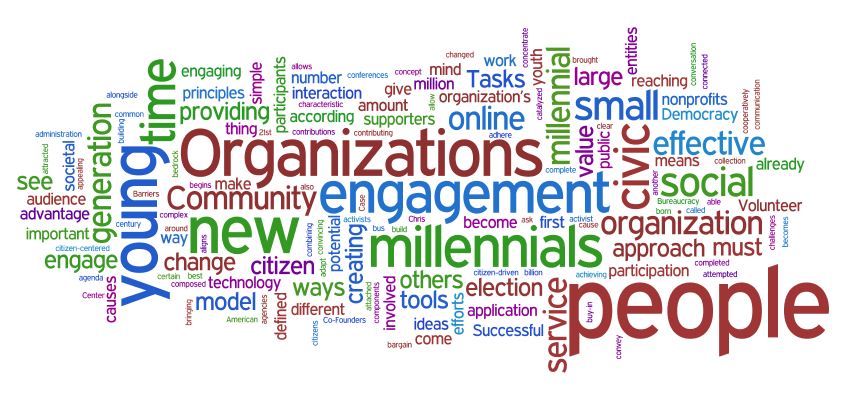Use Social Learning to Affect Culture Change at Your Credit Union

by Troy Hall, South Carolina Federal Credit Union
How do leaders use social learning to affect culture change that develops teamwork in an organization?
Leaders who adopt Bandura’s (1986) social learning theory subscribe to the understanding that a portion of the individual’s knowledge is derived from observation, interactions, experiences and outside media influence. Focusing on new-employee learning draws attention to the newest generation of employees, the millennial generation (Gen Y). By 2020, analysts predict the millennial generation to comprise more than 40 percent of the adult workforce, and by 2025 this dominant group is expected to represent more than 75 percent of the workforce with 50 percent being women.
It is imperative for leaders to understand the impact of the millennial generation on all aspects of the organization with social learning being one of them. Researchers, Wilson and Gerber, assessed the pedagogical issues of the millennial generations’ personality and determined four adaptations of teaching strategies to impact corporate social learning: (a) enhanced clarity of on the job course structure and assignments, (b) student participation in the learning structure, (c) pre-planned measures to reduce stress and (d) rigorous attention to the ethics of learning. Given that social learning is impacted by a variety of one’s experiences and interactions within a social network of peers, bosses, friends and family, the strategies offered by Wilson and Gerber provide a logical framework for organizational learning that impacts the development of the organization’s climate and culture.
This cultural influence may not be derived from actual communication, but interpreted from the policies, practices, procedures and routines within the organization. From my perspective at the credit union, this type of social learning happens on a regular basis. With the introduction of new policies and procedures, it is interpretative upon the nature of the day-to-day managers and supervisors to shape how it is perceived. Impacts of formal communications, which occur at staff meetings, and informal one-on-one communications, whether designed as constructive or simple water cooler chat, take place simultaneously at different parts of the credit union. During social gatherings or during other work events that transpire after the new policy or procedures implementation, employee and supervisor interactions draw inference from those previous communications that happened elsewhere in the organization. The phenomenon of transferring influences of perception from work groups to another shapes the culture and impacts teamwork. Even a change in the desk procedure in the mortgage department may have an effect on the front line staff, which ultimately impacts member experience.
Sustainable organizational change through social learning occurs when the employees’ experience aligns with the values of the organization’s people and its culture. This type of vertical influence is reflected through the dyadic relationship between the leader and employee, as well as the impact of the dyadic relationship between both peer groups. Studies concluded three sets of assumptions or perspectives that sustain teamwork within the relationships of supervisor/employee, supervisor/supervisor and employee/employee. These assumptions are: (a) people desire growth and development, (b) people value interpersonal interaction, both with peers and with superiors and (c) people need trust, support and cooperation to function effectively. Because of the dynamics of the relationships between employees and supervisors, informal and formal conversations shape the understanding and perceptions of the organization.
Today’s leaders need focused attention to maximize the characteristics of a learning organization. First and foremost, they leverage their organization’s adaptive nature and encourage both the generative (learning) aspects of development and the need for continuous experimentation and feedback. Social development of employees emerges when the degree of individual cooperation is beyond normal expectations. It allows for more levels of unintended or unplanned impersonal forms of cooperation to occur. Although a team and social learning are connected through the pathways where information flows, social learning requires more than information diffusion. The successful leader attempts to acquire feedback on the quality of the information sent and received. In this context, leaders identify and remove bad information, promoting the exchange of positive communication that stimulates the learning environment and its process.
Leaders affect cultural change within their teams when they, in fact, position learning for change whilst acknowledging that complex social environments have a problem of limitation. Experts Chamlee-Wright and Myers assert, “Knowledge is dispersed across countless networks and individuals have an interest in gaining access to a wide variety of differentiated sources of information. The limitations of the human mind suggest that we need to economize on the number of primary contacts we maintain.” Reflecting on Chamlee-Wright and Myers’ findings, leaders heed their advice and generate a system of social learning following these formidable suggestions: (a) condense information into easy to understand bite-sized pieces, (b) remain adaptable, (c) convey tactic knowledge beyond the team’s close circle of companions and (d) develop positive feedback loops to explore innovation.
Therefore, leaders are cautioned not to overlook technology and its influence on expectations and requirements of workers. Leaders must consider the impact of social computing, based on innovative Web 2.0 technologies, such as Facebook, Twitter, YouTube and Digg as well as the proliferation of e-mail usage at work, home, or play. These new outlets for social interaction speed the transfer of knowledge and connectivity of employees and change the approach to learning and knowledge sharing. Companies that understand the value of social learning drive innovation, efficiency and lifelong learning by connecting employees and allowing for the easy flow of informal communication.





